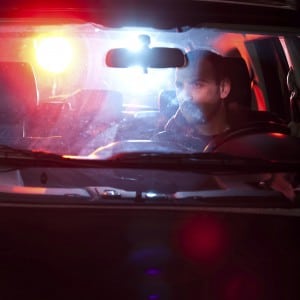
Basic advice that applies to any interaction with the police
If you get pulled over for DUI, the customary recommendations for dealing with the police definitely apply. Make sure you calmly and safely pull your vehicle over as soon as you can. Getting pulled over is an extremely stressful situation, but it’s important to speak politely to the officer and avoid swearing or other disrespectful behavior. It’s a small thing that can make a huge difference when interacting with the police.
Decline to answer incriminating questions
When a police officer pulls you over for DUI in California or anywhere else in the US, you still have certain rights as a citizen of this country. You are under no obligation to answer an officer’s “screening” questions about your activities, your condition, etc. In short, you are under no obligation to answer an officer’s questions and you should politely make that point with the officer.
What are the Miranda Rights?
The Miranda Rights come from the landmark Supreme Court case Miranda v. Arizona, in which the court ruled that when someone is taken into police custody and interrogated, he or she must be told of their Fifth Amendment Constitutional right to not make any self-incriminating statements. Because of this case ruling, every single person who is taken into police custody and interrogated is read the following prior to the interrogation:
You have the right to remain silent. Anything you say can and will be used against you in a court of law. You have the right to an attorney. If you cannot afford an attorney, one will be appointed for you.
Why does this all matter?
Knowing your rights is very important when you’re being questioned by the police because if you are under the influence of alcohol or drugs, you don’t want to incriminate yourself. Answering simple questions like, “have you been drinking?” “how much did you drink tonight?” and “do you feel drunk?” can hurt you when you’re being questioned and build the officer’s case for arresting you.
Otherwise, cooperate as much as possible
While you definitely don’t want to answer incriminating questions, make sure you decline respectfully and explain why you’re doing so—because it’s your Fifth Amendment right to do so. But you are required to provide the officer with your driver’s license, registration, and proof of insurance. Refusing to provide them to the officer will just belabor your already difficult situation.
Information about field sobriety tests
Everyone who has been through public high school knows what field sobriety tests are, though no one has actually participated in one unless they have been pulled over by a police officer. But did you know that doing a field sobriety test is completely voluntary in California?
The laws in our state do not require you to complete a field sobriety test at any time.
Conveniently, at least for the police officer, he or she will most likely neglect to mention that fact when he or she asks you to complete one. Southern California’s top criminal defense attorney and DUI specialist, Dan Chambers, recommends that you don’t even agree to do a field sobriety test. The reason is because these tests are incredibly subjective and officers are trained to look for extremely subtle clues that indicate that you are so-called “intoxicated.”
What to do if an officer asks you to complete one
So when the police officer asks you to do a field sobriety test, say something to the effect of: “I’m not willing to do a field sobriety test and I’m not required to do it according to California law.” It’s important to state this clearly for the record in case the police officer is wearing any kind of recording device that could be used in court.
What about chemical tests?
Chemical tests used to determine probable cause to arrest you for a DUI are also completely optional, unless you are under 21 or currently on probation for DUI. Attorney Chambers also recommends politely declining the PAS (preliminary alcohol screening) test because it only allows the police officer to continue building enough probable cause to arrest you if your blood alcohol limit is above .08% on this preliminary “screening” test.
Do yourself a favor and avoid helping the officer come up with probable cause. If he or she ends up arresting you anyhow without sufficient probable cause, any tests conducted post-arrest won’t be admissible in court.
So while it feels awkward and uncomfortable to refuse the police officer’s requests, you’re doing so in accord with your lawful rights as a Californian, so you should have nothing but a clear conscience.
Contact information for Dan Chambers
For more advice for what to do when you’re pulled over for DUI, or if you need specialized legal advice for your current DUI case, schedule a free consultation with Dan Chambers at the Chambers Law Firm today. Call 714-760-4088, email dchambers@clfca.com or click “Contact” in the menu above to send an online message.




